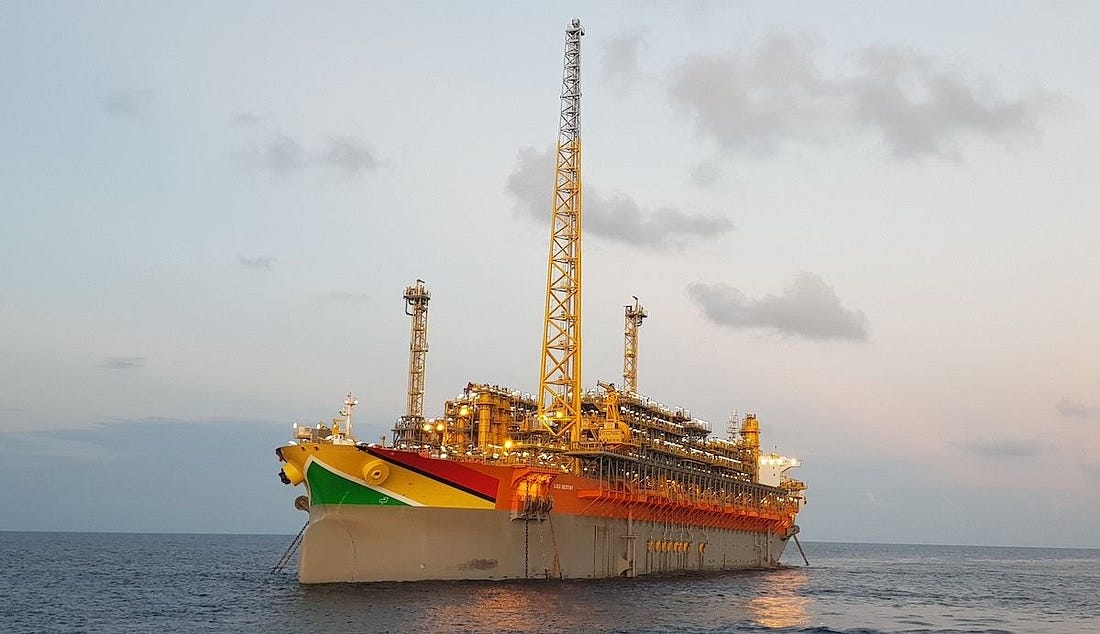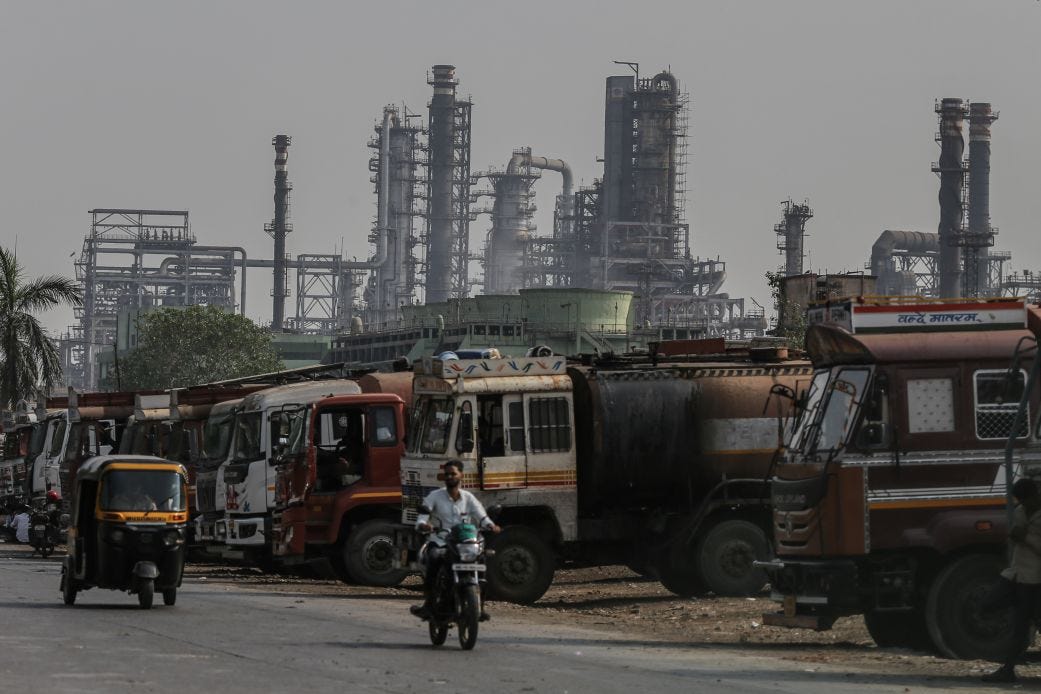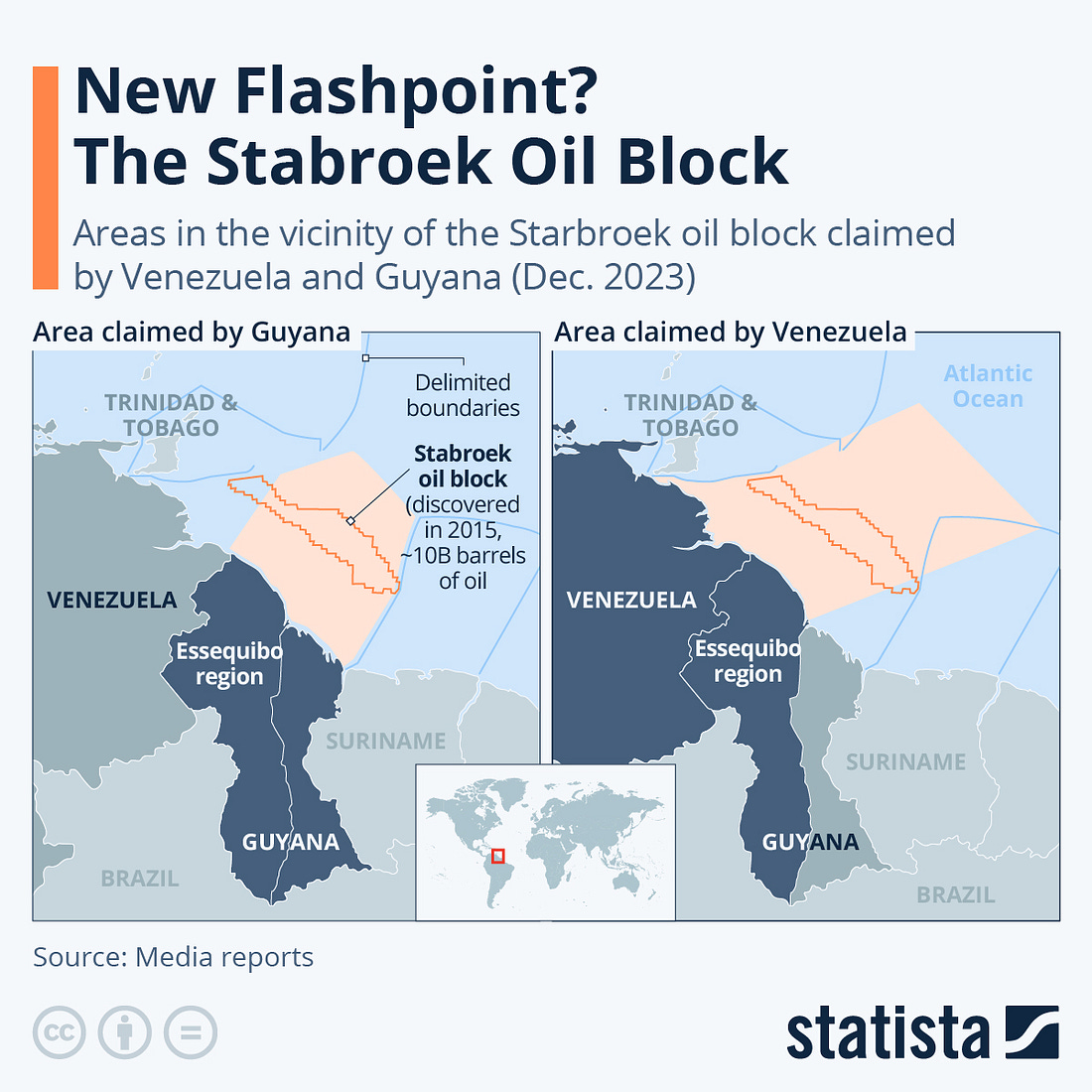Hitting the Geopolitical Bank ShotIndia’s purchase of oil from Guyana could be a major success for American foreign policy, if we can take advantage of it.Geopolitics is complex and multivariate. Policies pushed in one country can impact others halfway around the world. Trade ties between nations, even when bilateral, influence global prices. Wars in one region can deter, hasten, or incentivize conflicts elsewhere. The butterfly effect in international relations is profound. Sometimes these changes can happen rapidly, while others may take years, if not decades, to manifest. This is just one of the reasons why foreign policy is such a fraught subject. Nothing is monocausal, yet the interrelations between issues can be impossible to tease out. This creates significant challenges for policymakers, but also provides some unique opportunities for advancing national interests. Threading various facially different policies and regions into one coherent strategy is a rare occurrence, but these geopolitical bank shots can bring profound results. Right now, America has such an opportunity. The United States faces immense challenges across a variety of geopolitical theaters. In China, we have an epochal rival against whom we will need to build a durable coalition. There is an ongoing war against a democratic and Western-leaning Ukraine by a revanchist adversary in Russia. And there is an anti-American dictatorship in our own hemisphere, Venezuela, that routinely works to destabilize the region and undermine American interests. One recent, lightly covered, seemingly minor event has the potential to link all three of these problems and provide Washington with a jumping-off point to make a lasting impact in our favor: the purchase of a modest amount of Guyanese oil by India. Just this past week, two major Indian refiners bought a combined total of 4 million barrels of oil from ExxonMobil out of Guyana. This is an atypical purchase for Indian refiners, who get most of their inputs from Russia, Iraq, Saudi Arabia, the UAE, and the United States. Buying from a small, non-OPEC country is already uncommon for New Delhi, but this is the very first time they are sourcing fuel from Guyana. The purchase comes as the Guyanese oil export sector is dramatically growing due to new discoveries and offshore extraction via American companies. The current Indian purchase is a fairly small amount given the average daily oil consumption in India is about 5 million barrels, but it is meaningful for several reasons. First, it gains for India a further source of oil outside of Russian imports. That is a huge deal, as the US has been putting pressure on India to diversify away from Moscow as part of a broader push to bring Vladimir Putin to heel. President Trump has promised to levy sizable tariffs on the country as long as it continues to buy Russian crude, a meaningful penalty that India would prefer to avoid. Buying from Guyana makes sense for both parties – Guyana needs export markets and India needs new import partners. Additionally, the cultural ties between the two nations are strong and getting closer. Guyana’s largest ethnic population is ancestrally Indian, as the former British colony saw large migration of indentured servants from the subcontinent to work in agriculture. Just last year, Indian leader Narendra Modi visited Guyana, the first visit by an Indian leader since Indira Gandhi in 1968. Expanding the relationship to deepen economic ties is a natural step forward. This also benefits the United States. Guyana is a friendly nation that is open for American business. Resource exploration and extraction is mostly done by American companies, who benefit from the transaction and help advance US interests. American policy is also heavily implicated there, as its neighbor, Venezuela, is our primary hemispheric antagonist. The illegitimate, criminal Maduro regime has already been targeted by the Trump administration, with covert actions, overt attacks on purported drug boats, and significant sanctions being levied against them. Now, a US carrier strike group is moving to the region, portending more anti-Venezuela operations. For over a century, Caracas has had territorial ambitions in Guyana, claiming about two-thirds of the nation, including the oil-rich Essequibo area, as its own. Maduro made meaningful threats on the topic back in 2023 and has never renounced these imperialistic claims. Countering Venezuela must include supporting Guyanese territorial sovereignty. As an added benefit, Guyana would maintain control of its oil reserves and be able to continue supplying nations like India. Breaking Indian dependence on Russian oil would deal a significant blow to its wartime economy, already stressed under the weight of three years of combat and increasingly successful Ukrainian retaliation against its energy infrastructure. The only way to meaningfully bring Putin to the table is to punish Russia for its aggression and hit it where it hurts. Defunding its war machine, primarily boosted by oil exports, is the key to this approach. The new sanctions on major Russian energy companies are a great start, but are only part of the picture. Russia and Venezuela would not be the only parties negatively affected by this tighter integration of India into a US-centric bloc; China would be dealt a blow as well. India has long been a heavily desirable partner in countering Chinese ambitions for Indo-Pacific hegemony, but has played hard-to-get for just as long. Efforts like the Quad have been met with groupings like BRICS in a tit-for-tat cycle. But simultaneously breaking India away from China’s Russian ally and bringing them closer to America is a major win that could be built on going forward. And that is just what America should do. Washington is being presented with a golden opportunity to advance our geopolitical interests in three key theaters – Latin America, Asia, and Europe – while undermining our enemies. This is not a US-led project, but we should take advantage of what has fallen in our laps. If handled correctly, with stronger ties being fostered between India and Guyana, Russian oil exports reduced, and Venezuela constrained by American power, this could be a geopolitical coup. But it all depends on how the Trump administration handles it. Rational Policy is free today. But if you enjoyed this post, you can tell Rational Policy that their writing is valuable by pledging a future subscription. You won't be charged unless they enable payments. |
Saturday, 25 October 2025
Hitting the Geopolitical Bank Shot
Subscribe to:
Post Comments (Atom)
Invitation: The American World Outlook, and the Anglo American Shroud (Sunday Oct 26) featuring Anton Chaitkin
This Sunday October 26 at 2pm Eastern Time, The Rising Tide Foundation will be hosting renowned historian Anton Chaitkin who will deliver a ...
-
https://advanceinstitute.com.au/2024/04/24/sunnycare-aged-care-week-10/?page_id=...
-
barbaraturneywielandpoetess posted: " life on a rooftop can be short ; depends whether one looks down or up . ...



No comments:
Post a Comment